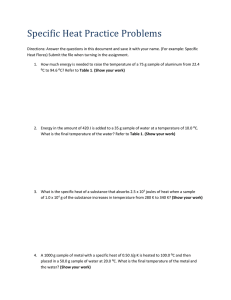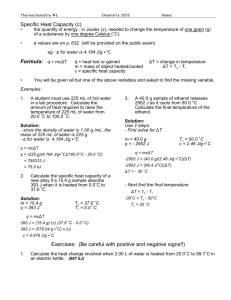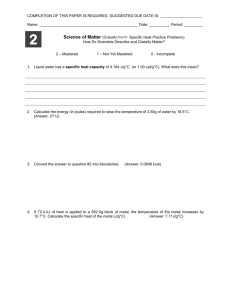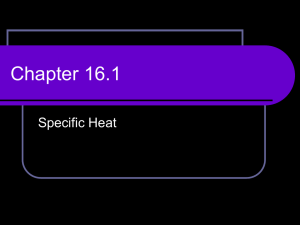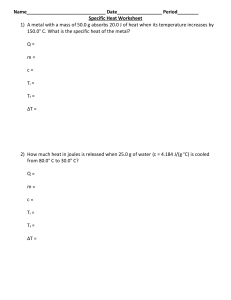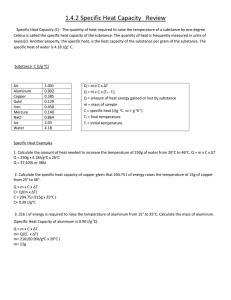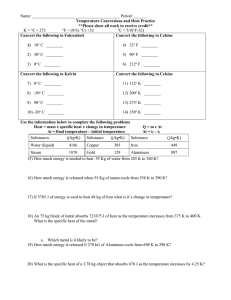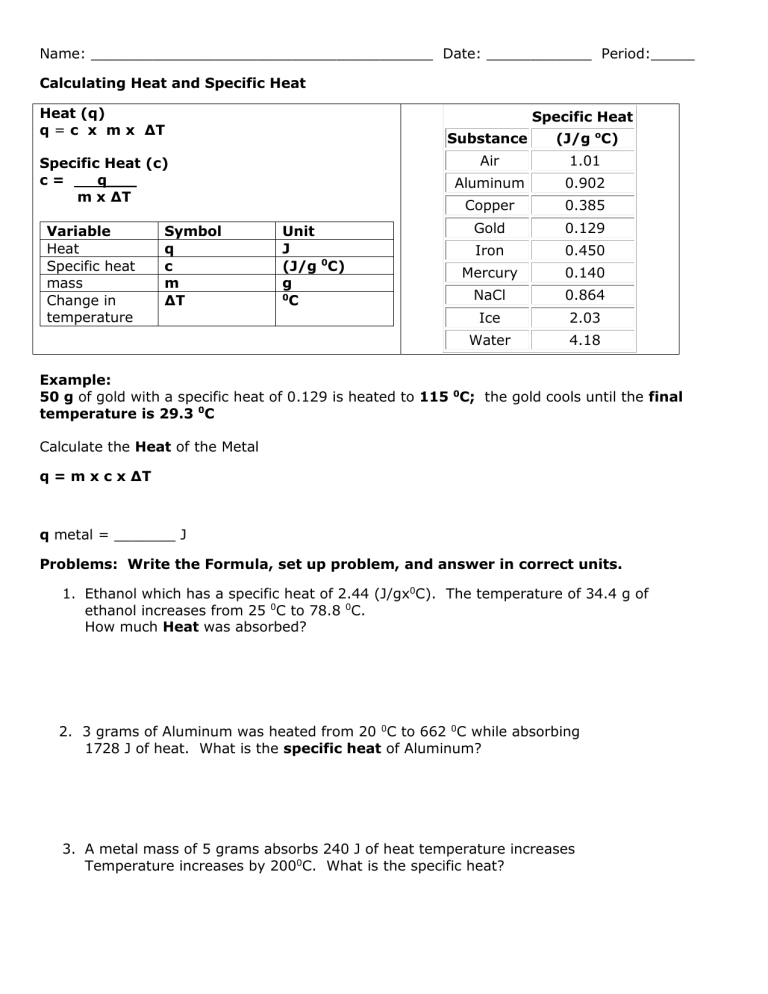
Name: _______________________________________ Date: ____________ Period:_____ Calculating Heat and Specific Heat Heat (q) q = c x m x ΔT Specific Heat Specific Heat (c) c= q___ m x ΔT Variable Heat Specific heat mass Change in temperature Symbol q c m ΔT Unit J (J/g 0C) g 0 C Substance (J/g oC) Air 1.01 Aluminum 0.902 Copper 0.385 Gold 0.129 Iron 0.450 Mercury 0.140 NaCl 0.864 Ice 2.03 Water 4.18 Example: 50 g of gold with a specific heat of 0.129 is heated to 115 0C; the gold cools until the final temperature is 29.3 0C Calculate the Heat of the Metal q = m x c x ΔT q metal = _______ J Problems: Write the Formula, set up problem, and answer in correct units. 1. Ethanol which has a specific heat of 2.44 (J/gx0C). The temperature of 34.4 g of ethanol increases from 25 0C to 78.8 0C. How much Heat was absorbed? 2. 3 grams of Aluminum was heated from 20 0C to 662 0C while absorbing 1728 J of heat. What is the specific heat of Aluminum? 3. A metal mass of 5 grams absorbs 240 J of heat temperature increases Temperature increases by 2000C. What is the specific heat? 4. Calculate the total amount of heat a beaker of water would absorb sitting in the sun. The water has a mass of 500g, a specific heat of 4.184 (J/gx0C), and had a change in temperature of 22 0C. 5. If the temperature of 100 g of water increases from 10 to 45 C, how much heat is absorbed? (Specific heat of water = 4.184 J/gC) 6. If the temperature of 15 g of aluminum increases from 20 to 350 C, how much heat is absorbed (specific heat of aluminum = 0.897 J/gC) 7. A 28 g coin absorbs 658 J of heat while it increases in temperature from 25 to 125 C. What is the specific heat of the metal in the coin? 8. How much heat is required to raise the temperature of 854 g of water from 23.5°C to 85°C? (HINT: use the specific heat for water) 9. How much heat is lost when 4110 gram metal bar whose specific heat is 0.2311 J/ g°C cools from 100°C to 20°C. 10. What mass of water will be needed to change its temperature 25°C using 4,532 J of heat energy?
